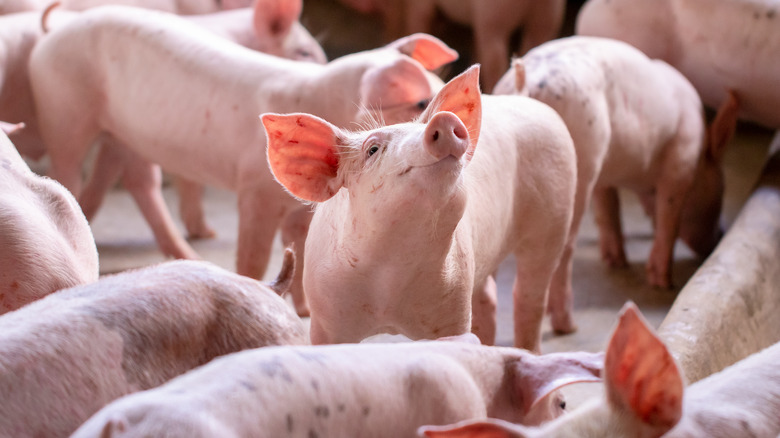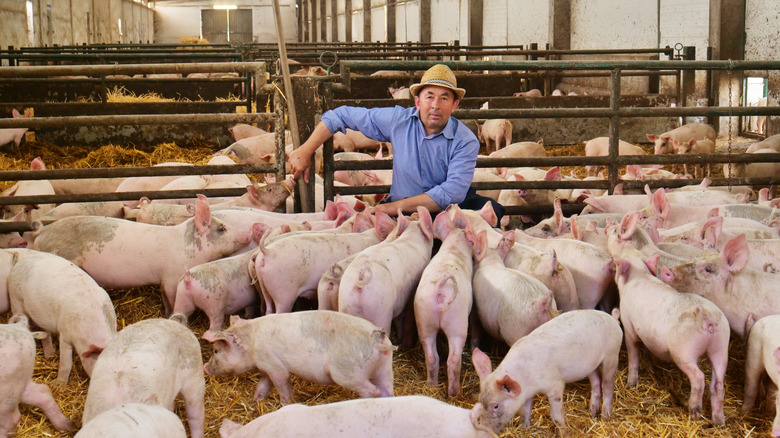New Study Could Help Pig Farmers Improve Animal Welfare
While some may assume pigs are nothing more than pink, and sometimes cute, animals that only say, "oink," any farmer would easily disagree. According to Stewart Skinner, the co-owner of Imani Farms in southwestern Ontario, pigs are capable of a wide range of vocals. Skinner explained to The New York Times that pigs communicate with a number of sounds, including grunts, squeals, barks, and screams, with each noise corresponding to a unique set of emotions. "I have often joked that this job would be far easier if we could speak pig," Skinner told the publication.
Thanks to a recent study published in Scientific Reports, farmers like Skinner are a lot closer to doing just that. The study, which is known as the SoundWel project, was commissioned by the European Union (EU) to help professionals create improved welfare in pigs on farms. In doing so, researchers from five different research labs collectively developed an algorithm that can determine a pig's emotions based on the sounds it makes instead of leaving the interpretation to farmers' intuition alone. This was achieved by recording pig noises from 411 pigs from birth until slaughter, which resulted in 7,400 unique sounds that researchers were able to correlate to complex emotions such as happiness while eating and sadness while in pain.
How do farmers put this research into practice?
Farmers fortunately won't have to memorize the 7,400 different pig noises in order to better understand their pigs. That'll eventually be the job of artificial intelligence. While researchers have already gathered plenty of data, they're still in search of an engineer who will be able to program the algorithm into an app or tool. As the study's website states, "The final outcome of SoundWel will be an accurate, non-invasive system for identifying pig emotional states."
Farmers have been doing just fine without this technology, but researcher Elodie Briefer, an associate biology professor working at the University of Copenhagen, says that understanding pigs on an emotional level can greatly improve farm life. "Animal welfare is nowadays widely accepted to be based not only on the physical health of animals, but also their mental health," Briefer told The New York Times. Knowing conclusively that a pig is experiencing distress allows farmers to quickly address any medical or environmental issues that may be affecting its health and well-being. As a result, operations at a pig farm not only run a lot smoother, but are much more livable for the pigs.

